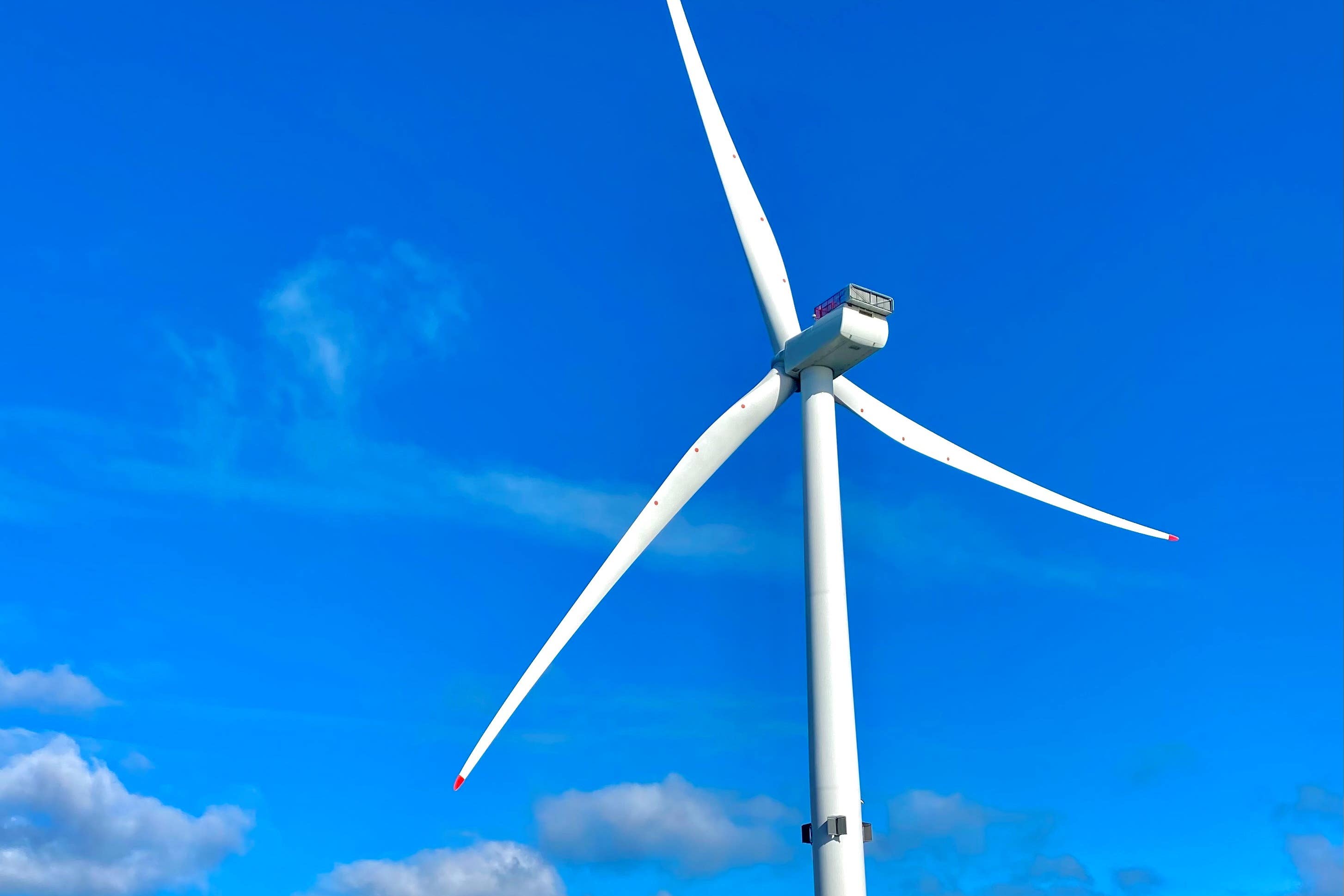Floating offshore wind farm approved off Welsh coast
The first stage, known as project Erebus, will see turbines generating electricity for 93,000 homes after their completion in 2026.

Your support helps us to tell the story
From reproductive rights to climate change to Big Tech, The Independent is on the ground when the story is developing. Whether it's investigating the financials of Elon Musk's pro-Trump PAC or producing our latest documentary, 'The A Word', which shines a light on the American women fighting for reproductive rights, we know how important it is to parse out the facts from the messaging.
At such a critical moment in US history, we need reporters on the ground. Your donation allows us to keep sending journalists to speak to both sides of the story.
The Independent is trusted by Americans across the entire political spectrum. And unlike many other quality news outlets, we choose not to lock Americans out of our reporting and analysis with paywalls. We believe quality journalism should be available to everyone, paid for by those who can afford it.
Your support makes all the difference.Consent for a floating offshore wind farm has been granted off the Pembrokeshire coast, which will eventually provide enough power for four million homes, the Welsh government has said.
Seven 14-megawatt turbines will be built on floating platforms 40km out to sea and will provide enough clean energy to power 93,000 homes.
They are part of a development that could in future see as much as 20 gigawatts of electricity being produced in the Celtic Sea.
The Climate Change Committee, which advises the Government on decarbonisation, said offshore wind should form the bulk of Britain’s electricity production by 2035.
The Erebus project has the potential to show the world that Wales and the Celtic Sea can deliver renewable energy alongside the sustainable management of our marine resources.
Labour MP for Aberavon Stephen Kinnock told the House of Commons earlier this month that floating offshore wind could be a “genuine game-changer” for South Wales and that it could turn the region into a “green power superpower”.
MPs from Labour and the Conservatives also urged the Government to ensure that new turbines are made by UK-based companies.
Known as project Erebus, the new turbines will be erected by Blue Gem Wind, a joint venture between French multinational TotalEnergies and Irish ocean developers Simply Blue Group.
Construction is set to begin in January 2025 with the turbines in operation by the end of 2026.
First Minister of Wales Mark Drakeford said: “We are ambitious for the floating offshore wind sector in Wales – we believe it has the potential to deliver sustainable sources of energy into the future and it is also a once-in-a-generation opportunity to open up new markets for local suppliers and to create thousands of high-quality jobs in Wales.
“The Erebus project has the potential to show the world that Wales and the Celtic Sea can deliver renewable energy alongside the sustainable management of our marine resources.”
The floating platforms use the same turbines as conventional offshore wind farms but they are attached to floating structures secured to the seabed with anchors.
This means they can be built further out in deeper waters where the wind is stronger.
Stephen Crabb, MP for Preseli Pembrokeshire and Welsh Affairs Committee chair, said: “It is very welcome news that Pembrokeshire could be home to Wales’ first floating offshore wind farm.
“As mentioned only last week in our Committee’s report on floating offshore wind, the potential is enormous if we manage to harness the energy potential further out at sea.
“It could be transformative to the local economy and supply chains, supporting many jobs and livelihoods to a predominantly rural area.
“Floating offshore wind could be the greatest investment opportunity in Wales for decades. For this to be realised, we must ensure that local supply chains benefit from the boost in business, rather than manufacturing simply being offshored to international competitors as we saw with a lot of fixed bottom offshore wind.”
Project Erebus was named after the famous ship, which was built at Pembroke Dock in 1826 and disappeared 22 years later with its sister ship Terror and all their crew in the Arctic while searching for the Northwest Passage.
Jess Ralston, head of energy at the Energy and Climate Intelligence Unit, said: “The UK’s early subsidies are already paying off as we have one of the most established offshore wind industries in the world, part of the UK’s £70 billion net-zero economy.
“New floating offshore wind, supported by the highly successful Contracts for Difference scheme, is another potential example of a growth industry, with knowledge and expertise we could export to the rest of the world, bringing benefits to jobs throughout the supply chain and the economy.”
Mike Scott, project managing director at Blue Gem Wind, said: “We welcome the decision from Welsh ministers to grant the necessary planning consents for project Erebus and have been working with Planning and Environment Decisions Wales and other key stakeholders since 2019 to develop a project that is sympathetic to the natural environment and minimises impacts to local communities and stakeholders.
“Erebus, which will be the first floating wind farm in Wales, will play a crucial role in advancing the deployment of what will become a globally important low carbon technology.”